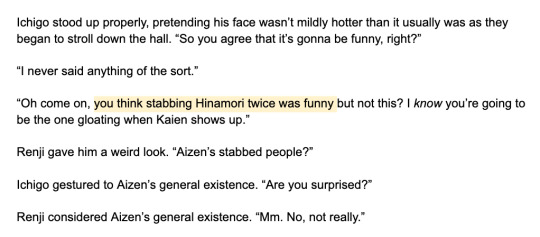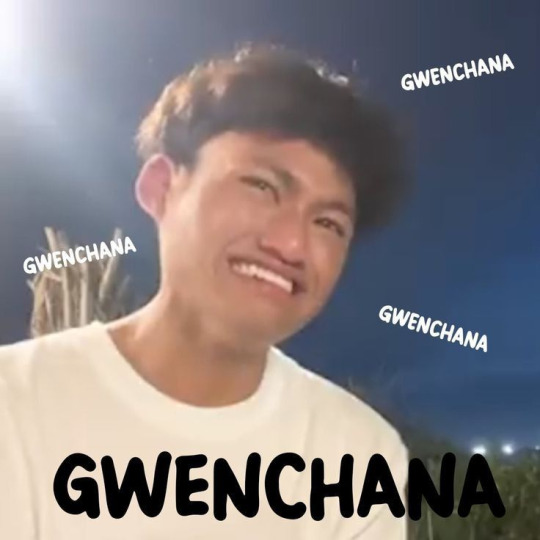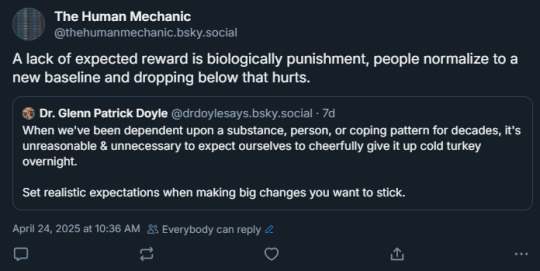#Neuroscience of Addiction
Explore tagged Tumblr posts
Text
Think Sober!: Conquer Addiction, Unlock Your Mind
Alright, listen up! Right now, at *Think Sober*, our aim is laser-focused. We're not just talking about quitting; we're talking about conquering. We're here to equip every individual battling substance use disorder to grab hold of sobriety and step into a life brimming with meaning. How do we do it? We arm you with the fundamental tools for recovery, and get this – we go straight to the engine room: your mind.
We're talking about a transformation from the inside out, fueled by the cutting edge of psychology and the mind-blowing discoveries in neuroscience. This isn't just willpower; this is rewiring, retuning, a radical upgrade of how you think and perceive.
And what does it mean to *think sober*? It's not just about the absence of something; it's the presence of everything. It's about your thoughts snapping into crystal clarity, your judgment ringing true, and your ability to process the world around you with pure, unadulterated reason. No more fog, no more haze.
This is about your cognitive functions firing on all cylinders, operating at their God-given baseline. It's about seeing things as they are and making decisions rooted in wisdom, not impulse. It's about your mind being a robust, reliable instrument, allowing for perception that's sharp, rock-solid reasoning and decision-making that propels you forward into the life you were always meant to live. So, let's get after it! Let's unlock that sober mind and unleash the incredible potential within!
#Sobriety#Addiction Recovery#Substance Use Disorder#Think Sober#Mental Clarity#Cognitive Function#Neuroscience of Addiction#Psychology of Addiction#Mindset#Transformation#Rewiring the Brain#Meaningful Life#Potential#Decision Making#Reason#Impulse Control#Recovery Tools#Support
1 note
·
View note
Text
How the Brain Manages Addictions
A sample chapter from my new book, “Train Your Brain for a Healthier and Happier Life.” Habits, Cravings, and Deceptive Reward Systems Shape Behavior Dear Avid Readers, Addiction is one of the biggest problems in the modern world. We are all addicted to different things somewhat. However, it is possible to recover from our addictions with practical tools and viable solutions that can rewire…
#addictions in the brain#addictions in the minds#cognitive performance#Cognitive Science#Deltafosb#dopamine dysregulation#dopamine system#mental health#neurobiology of addiction#neuroscience of addiction#Self Improvement#Train Your Brain for a Healthier and Happier Life
1 note
·
View note
Text

wip friday from my self-indulgent aiichi time travel fic that i apparently haven't updated in three years?? my bad damn
ive had chapter 3 like 90% done for a while but then satosugu got a chokehold on me and. yeah stsgzume took up all my writing...luckily for aiichi i finally started to lose steam on that. unluckily for me who was trying to get that shit done

this was the comment on the highlighted line btw LMFAOGDJK i really can't take aizen seriously...if you've seen my reblog of that one post about him and ichigo working together in isshin's clinic. you know
anyway chapter 3 coming out soon because i'm never more productive on my fanfics than when i have a bajillion tests coming up (and a literal anime con to run tomorrow but like yk)
#you can probably tell but i make myself laugh so hard every time i reread this wip#i have a bunch of separated scenes already done that i need to fit into the timeline but they're all so fuckign funny#my neurosci professor was talking about the horrors of drug addiction and i was in the second row trying my hardest to not laugh#unfortunately for me. writing for the audience of 1 person (yourself) means you find all your own jokes funny#don't reread your fics in class chat#i think my standards are just really low LMFAOO#aiichi#sousuke aizen#kurosaki ichigo#ichigo kurosaki#aizen sousuke#bleach
26 notes
·
View notes
Text

Reworked my old fan cover design for this awesome book!
#art#illustration#book cover#cover art#yaa gyasi#transcendent kingdom#love this book#I had so much fun with the symbolism#no hate to the og covers but there’s so much to work with in the book#poppies#evangelicalism#opioid epidemic#neuroscience#women in stem#faith#black women in stem#ghana#lab rats#church#addiction#mental illness#I love ur book Ms gyasi#notice me senpai
4 notes
·
View notes
Text
t-11 hours until my (hopefully) final final. SET ME FREE FROM THESE DAMN SHACKLES.


i just wanna write PLS
#⍣ 𝐧𝐚𝐧𝐚: 𝒷𝒶𝒷𝒷𝓁𝑒𝓈#I WILL LOCK IN AND RETURN A GRAD#choose you... my youth is free... they will be updated#bear with me guys#neuroscience is not for the weak#you'd think addiction is easy to understand the way i lurk on this damn site
2 notes
·
View notes
Text
Man, words can be quite everywhere ... SO HERE'S A LIST Y'ALL CAN HELP ME UPDATE, OF WORDS AND TERMS TO NOT USE ANYMORE!
Well, besides THIS I guess: List of disability-related terms with negative connotations - Wikipedia .
Delulu. Not cute (not sure how others thought it was), downplays actual delusions, hurt when I was called that so I just hated that word from the start, so it was easy to avoid it.
Insane asylum. (Well, besides the ableism ... I don't think that's what it's called 😐) ...
Addiction-related list or something:
Crackhead.
#saneism#tw ableism#ableism#disabled#disability rights#disability#disabilities#mental illness#mental health awareness#mental health#psychology#addiction#neurodivergent#neurodiversity#neurodivergence#neurospicy#neurodiverse stuff#neuroscience#diagnosis
5 notes
·
View notes
Text
Overcoming limerence involves recognizing and acknowledging its existence, understanding that it is a psychological state driven by obsessive thoughts and idealization rather than true love. Limiting contact with the person fueling the limerence, challenging irrational thoughts, and focusing on self-care are key steps. It's important to shift attention toward personal growth, build real connections, and address underlying emotional needs or past trauma. Emotional regulation techniques and setting boundaries can help manage the intensity of feelings. Professional help, such as therapy, can be valuable in addressing deeper patterns. Healing takes time, but by focusing on self-improvement and allowing the emotions to fade, one can gradually overcome limerence and form healthier relationships. #OvercomingLimerence #EmotionalHealing #SelfCare #PersonalGrowth #HealthyBoundaries #EmotionalWellbeing https://www.youtube.com/watch?v=5tWaHxeeUog
#limerence#limerence psychology#limerence neuroscience#obsessive love#romantic obsession#unrequited love#infatuation#signs of limerence#how to overcome limerence#love addiction#limerence vs love#emotional obsession#attachment theory#psychology of love#limerence symptoms#brain and love#coping with limerence
3 notes
·
View notes
Text
It’s important for kids (and adults) to understand that the more we pay attention to our phones the less we’re investing energy in the rest of our lives and, as a result, “the rest of our lives actually become less interesting,” said Anna Lembke, the chief of the Stanford Addiction Medicine Dual Diagnosis Clinic at Stanford University and the author of “Dopamine Nation.”
At the dinner table and elsewhere family members need to “collectively all turn our attention to each other,” she said. “We have to do that in order to preserve those connections.” Be honest about your own struggles curbing media usage. Take digital breaks when needed and encourage your kids to log off too.
“Social media platforms are designed to be addictive,” Dr. Twenge said. “It’s not just an individual problem, it’s a group problem.”
— Worried About Your Teen on Social Media? Here’s How to Help.
#christina caron#anna lembke#technology#computing#internet#social media#communication#psychology#neuroscience#addiction#children#teenagers
7 notes
·
View notes
Text
I believe this to be true for I have experienced miracles.
Neurons that fire together wire together. Forget what is gone, appreciate what remains.
All things are possible with focus

1K notes
·
View notes
Text
🍬 Sugar Addiction: Real or Just Craving? 🧠 Is sugar really addictive—or are we just blaming our sweet tooth? As a psychology student with a deep curiosity about how the brain influences behavior, I dove into the neurobiology of sugar consumption. What I found is eye-opening. In this post, I explore how sugar lights up the same brain reward systems as addictive drugs, triggering dopamine spikes and altering neurotransmission. We'll look at how brain structures like the amygdala and cerebellum might be influenced by sugar intake—and how this changes mood, motivation, and even memory. I also break down what the DSM-5 says about addiction and whether sugar meets the criteria. (Spoiler: it kind of does.) This post is for anyone curious about the psychology of eating, addiction science, or how everyday choices are connected to deeper neurochemical patterns. Whether you’re a fellow student, therapist-in-training, or someone navigating their own food relationship, I hope this gives you some clarity and curiosity. 📚 Based on current research (and my own academic journey through biopsychology), this blog blends narrative, science, and reflection. 👉 Read it now and let me know your thoughts. Is sugar addiction real, or is it something else entirely? #MentalHealth #PsychologyStudent #Biopsychology #Neuroscience #SugarAddiction #BrainHealth #Wellness #FoodAndMood #DSM5 #Dopamine #RewardSystem
#addiction science#amygdala#biopsychology#brain chemistry#brain health#cerebellum#dopamine#DSM-5#emotional eating#evolutionary psychology#mental health#mindful eating#neuroscience#nutrition and behavior#psychology#psychology student blog#reward system#student therapist#sugar addiction#wellness blog
0 notes
Text
The hippocampus and spinal cord exhibit plasticity, enabling recovery after injuries. Conditions like drug use, mania, and love lower the threshold for pleasure center activation, creating euphoric states. This plastic change fosters optimism but can lead to withdrawal symptoms when separated.
#addiction#Brain#Dopamine#Drug Abuse#Globalization#Health#Human Brain#love#Mental Health#Neuropsychology#Neuroscience#Psychology#wellness
0 notes
Text

0 notes
Text
Addictions : une approche biologique pour mieux comprendre et mieux traiter
Les addictions ne sont pas uniquement psychologiques. Il existe aussi des facteurs biologiques qui influencent notre rapport aux substances, aux comportements répétitifs ou à la dépendance. Certains déséquilibres neurobiologiques, génétiques ou hormonaux peuvent jouer un rôle central dans l’apparition ou la persistance d’une addiction. Une approche moderne et complète de l’addictologie ne peut plus ignorer cette dimension. Elle permet de : 🔬 Comprendre le rôle de la dopamine et du système de récompense 🧬 Prendre en compte la génétique et les antécédents familiaux 🧠 Adapter les traitements de manière plus fine ➤ Pour mieux comprendre cette approche biologique des addictions, voici une ressource claire et bien structurée : https://addictions.ma/approche-biologique-des-addictions
1 note
·
View note
Text
Forget everything you thought you knew about addiction treatment. Did scientists accidentally stumble on a way to break the cycle—for real this time? This ain’t your typical recovery story. Tap in for the boldest take on the newest science twist.
#Accidental Discovery#addiction#brain health#FIERCE MILLENNIAL#FIERCE WELLNESS#Mental Wellness#neuroscience#public health#recovery#Science Breakthrough#Tech Talk
0 notes
Text
The Impact of Drug Use on Autism Rates
Are vaccines the cause of Autism rates? Could it be that we look for autism and diagnose it more often? Maybe autism and other birth defects are simpler to explain. Read on...
I don’t believe Robert F. Kennedy Jr. needs to search extensively for the cause of autism. I have been thinking much about what RFK thinks about vaccines, food and so forth. I think his concern for Autism is spot on. This article explores the causes of the country’s falling health, Autism and birth rates. If you have used drugs like marijuana or cocaine at parties, your child’s poor health…
0 notes